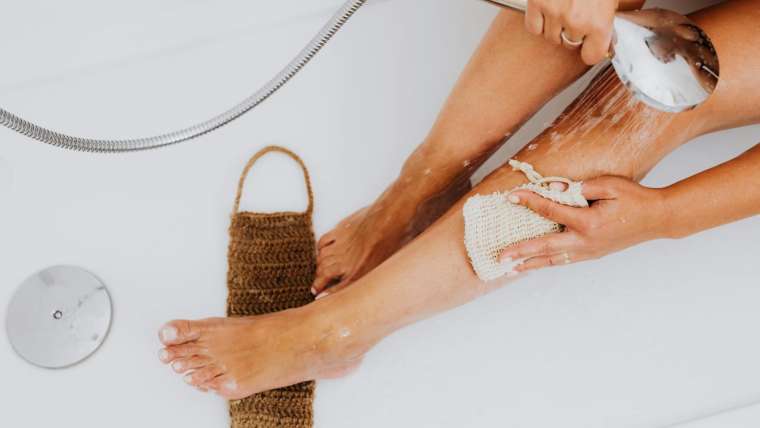Uncover the hidden truth about sleep apnea and how it can unlock the key to a truly restful night’s sleep.
Table of Contents
Are you tired of waking up feeling exhausted even after a full night’s rest? Do you experience frequent loud snoring or pauses in your breathing while sleeping? These could be signs of a common but serious sleep disorder known as sleep apnea. In this blog post, we will delve into the world of sleep apnea, exploring its symptoms, causes, treatment options, and tips for improving sleep quality. Say goodbye to restless nights and hello to a rejuvenated, energized morning!
What is Sleep Apnea?
Sleep apnea is a sleep disorder characterized by pauses in breathing or shallow breathing during sleep. These pauses can last for a few seconds to minutes and may occur multiple times throughout the night. The most common type of sleep apnea is obstructive sleep apnea, where the airway collapses or becomes blocked during sleep, leading to breathing interruptions.
Obstructive sleep apnea can disrupt your sleep cycle, prevent you from achieving restorative deep sleep, and result in daytime fatigue, irritability, and other health complications. For some individuals, sleep apnea can go undiagnosed for years, impacting their overall quality of life.
Causes and Risk Factors
Several factors can contribute to the development of sleep apnea, including:
- Excess weight or obesity
- Narrowed airways due to genetics or anatomy
- Family history of sleep apnea
- Smoking or alcohol consumption
- Age-related muscle relaxation in the throat
Men and individuals over the age of 40 are at higher risk of developing sleep apnea. Additionally, certain medical conditions such as hypertension, diabetes, and nasal congestion can further increase the likelihood of experiencing sleep apnea.
Diagnosis and Treatment
If you suspect you may have sleep apnea, it is essential to consult a healthcare professional for a proper diagnosis. A sleep study, either conducted at a sleep center or using a home sleep apnea test, can help determine the severity of your condition and guide treatment recommendations.
Treatment options for sleep apnea may include:
- Continuous Positive Airway Pressure (CPAP) therapy: A CPAP machine delivers a steady stream of air through a mask worn during sleep, keeping the airway open and preventing breathing disruptions.
- Oral appliances: These devices are worn in the mouth to reposition the jaw and tongue, helping to maintain an open airway.
- Lifestyle changes: Losing weight, quitting smoking, avoiding alcohol before bedtime, and sleeping on your side can all help reduce symptoms of sleep apnea.
In some cases, surgery may be recommended to address the underlying causes of sleep apnea, such as enlarged tonsils or a deviated septum.
Tips for Improved Sleep Quality
In addition to medical interventions, there are several lifestyle changes and bedtime habits that can contribute to better sleep quality for individuals with sleep apnea:
| Category | Information |
|---|---|
| What is Sleep Apnea? | Sleep apnea is a sleep disorder characterized by pauses in breathing during sleep. |
| Types of Sleep Apnea |
|
| Causes of Sleep Apnea |
|
| Symptoms of Sleep Apnea |
|
| Treatment Options |
|
| Benefits of Treatment |
|
- Establishing a regular sleep schedule and bedtime routine
- Avoiding caffeine and heavy meals close to bedtime
- Creating a calm and comfortable sleep environment
- Elevating your head while sleeping to improve airflow
- Engaging in relaxation techniques such as deep breathing or meditation before bed
By incorporating these strategies into your daily routine, you can enhance the effectiveness of your treatment plan and experience more restful and rejuvenating sleep.
Conclusion
Sleep apnea may be a common sleep disorder, but it should not be taken lightly. By understanding the symptoms, causes, and treatment options for sleep apnea, you can take proactive steps towards improving your sleep quality and overall well-being. Remember, a restful night’s sleep is within reach – it’s time to prioritize your sleep health and wake up feeling refreshed and revitalized each morning!
FAQ
What are the symptoms of sleep apnea?
Answer 1: Symptoms of sleep apnea include loud snoring, daytime fatigue, morning headaches, and pauses in breathing during sleep.
How is sleep apnea diagnosed?
Answer 2: Sleep apnea is diagnosed through a sleep study conducted at a sleep center or with a home sleep apnea test.
Can lifestyle changes improve sleep apnea?
Answer 3: Yes, lifestyle changes like weight loss, quitting smoking, and avoiding alcohol before bedtime can help reduce symptoms of sleep apnea.
What are the treatment options for sleep apnea?
Answer 4: Treatment options for sleep apnea may include CPAP therapy, oral appliances, surgery, and lifestyle modifications to improve overall sleep quality.





